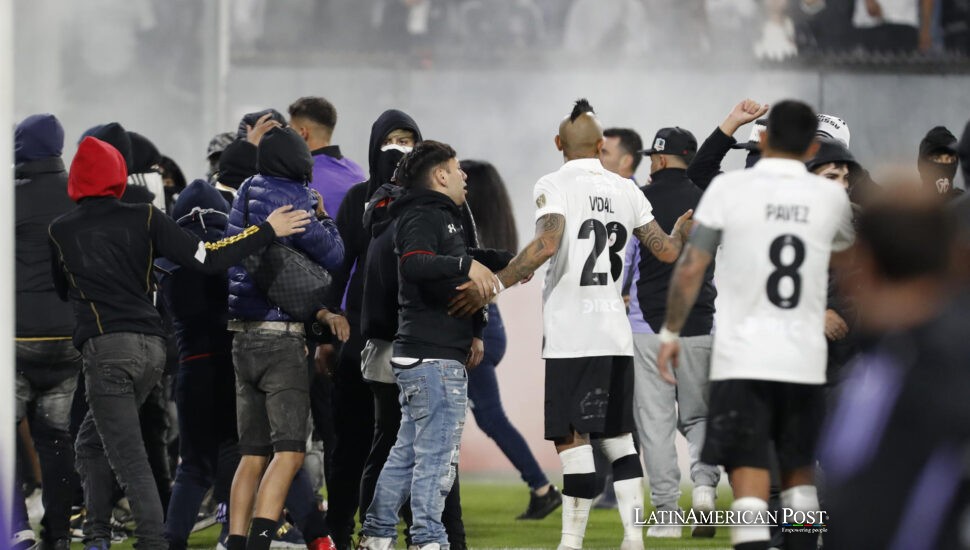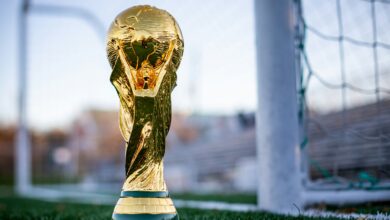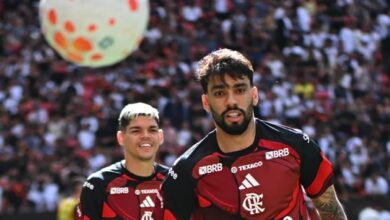South American Football Cup: Violence, Upsets, Surprising Twists

The 65th Copa Libertadores tournament has been defined by unpredictable disruptions, including canceled matches and shocking fan violence, while clubs faced elimination threats. In the midst of disorder, South America’s passion stands strong as spectacular goals and captivating performances continue to emerge.
Four Perfect Teams, Dozens of Goals
The Copa Libertadores’ group stage has already delivered its signature mix of talent and tension across 32 matches. A total of 75 goals have been scored, averaging 2.34 per match—evidence that regardless of behind-the-scenes drama, the quality of play on the pitch has often been exhilarating.
Alianza Lima’s Kevin Quevedo and Hernán Barcos alongside Bolívar’s Ramiro Vaca stand out on the offensive side with four goals each that place them at the top of the early scoring standings. The attacking performances of these players raised the quality of offensive play while maintaining strong fan interest both on television and in stadiums.
Yet the most striking headlines come from four teams that remain undefeated, each sitting atop their groups with six points from two games. Chile’s Universidad de Chile, Paraguay’s Libertad, Brazil’s Palmeiras, and Argentina’s Vélez Sarsfield have all begun in dominant fashion, outscoring their opponents by comfortable margins. Coaches in these clubs highlight two critical elements behind their success: disciplined defensive structures and flexible attacking schemes that have netted timely goals.
• Universidad de Chile: Managed by Argentine coach Gustavo Álvarez, they have conceded only once and lead Group A with two gritty but well-deserved victories.
• Libertad: Their defense has been unbreakable so far in Group D, with three goals scored and zero conceded under the guidance of Argentine Paraguayan Sergio “Patito” Aquino.
• Palmeiras: A perennial favorite, led by Portuguese strategist Abel Ferreira, they have claimed six points in Group G on the back of quick transitions and the flair of a star-studded roster.
• Vélez Sarsfield: Winners of the 1994 Copa Libertadores, Vélez currently dominate Group H with six goals scored, and only one conceded, revealing the potency of Argentine coach Guillermo Barros Schelotto’s tactical approach.
As these four undefeated sides celebrate perfect starts, they also know that history has shown the Copa Libertadores to be a marathon, not a sprint. Points earned now are vital, but continued consistency remains the real challenge as the group stage barrels toward its midpoint.
Eight Teams, Zero Points—and Turmoil
In stark contrast to those flourishing at the top, eight clubs find themselves anchored to the bottom of their respective groups, still without a single point. One club from each group shows how narrow the line is between winning and losing at South America’s top football competition.
Two of the struggling teams have terminated their head coach contracts. The last-place standing of Sporting Cristal in Group G after losing 3–0 to Bolívar led to the club firing Argentine manager Guillermo Farré to stop their decline. Meanwhile, venerable Paraguayan giants Olimpia bid farewell to Argentine coach Martín Palermo after a humiliating 0–4 loss against Vélez Sarsfield in Group H. Olimpia, despite having captured a domestic championship just last season, has stumbled badly at the continental level.
Additional struggling sides include Venezuela’s Carabobo in Group A, Universitario de Deportes (Peru) in Group B, Deportivo Táchira (Venezuela) in Group C, and Talleres (Argentina) in Group D. Perhaps the most surprising name on the winless list is Fortaleza of Brazil (Group E), who had a match against Chile’s Colo Colo abruptly canceled in the 72nd minute, locking both teams in limbo until Conmebol decides how to conclude or reschedule the encounter.
For these eight clubs, the next few fixtures represent do-or-die moments. Turning around a winless start in the notoriously competitive Libertadores requires not only in-game resilience but strong leadership and clear strategic adjustments off the pitch. Each defeat tightens the margin for error, amplifying the pressure on players and newly installed coaches.
A Dark Cloud of Violence
Unfortunately, the Copa Libertadores has once again proven vulnerable to acts of fan violence that overshadow the sporting spectacle. The most glaring incident involved Chile’s Colo Colo and Brazil’s Fortaleza in Group E. Hundreds of fans attempted to storm Estadio Monumental in Santiago before kickoff, an incident that led to two tragic deaths: Chilean supporters aged 12 and 18 lost their lives amid chaotic clashes with police. Though the match kicked off as planned, disturbances reached the field in the 72nd minute, with a group of Colo Colo’s barras brava invading the pitch to protest the fatalities. Players from Fortaleza fled to the locker rooms, and the match was ultimately suspended after a 40-minute delay.
Conmebol planned to clear the stadium to restart the match without spectators but abandoned the plan due to the excessive possibility of additional unrest. The confederation made the official announcement that the match was canceled, which resulted in both teams waiting for an official decision regarding sanctions or a rematch. Colo Colo, already on Conmebol’s radar for prior crowd troubles, now faces a likely punishment under an ever-stricter disciplinary framework.
Elsewhere, violence also flared in Porto Alegre after Internacional’s 3–0 victory over Atlético Nacional in Group F. Post-match clashes among Colombian supporters led to two tragic deaths. A 27-year-old man perished after receiving a stab wound from an Atlético Nacional supporter. Fellow supporters severely beat the alleged assailant, after which he died in a local hospital due to his injuries.
These events raise difficult questions about security measures, the role of extremist supporters, and what steps clubs and authorities must take to ensure that the passion for South American football does not devolve into tragedy. Critics argue that current disciplinary rules do not go far enough in penalizing clubs for recurrent violence. Solutions often revolve around ticket-sale restrictions, improved police oversight, and better coordination with local governments to curb extremist factions.
Yet the underlying issues—socioeconomic pressures, political tensions, and the deep-seated culture of ultra fandom—are not easily unraveled. The Copa Libertadores tournament reveals a harsh truth as fans and league authorities confront the fact that athletic achievements can instantly unravel due to off-field violence.
Also Read: Brazil’s Indigenous Football Championship Unleashes Pride Under Vast Skies
The darker events that occurred during this tournament, which highlight South American talent and toughness, created lasting negative impressions. Even as the competition brims with remarkable goals and fresh underdog stories, the call to safeguard public safety grows louder. If the Libertadores is to maintain its status as the continent’s most coveted prize, a collective effort to unite sporting joy with responsibility must become a core value—one that extends beyond the result of any single match.





